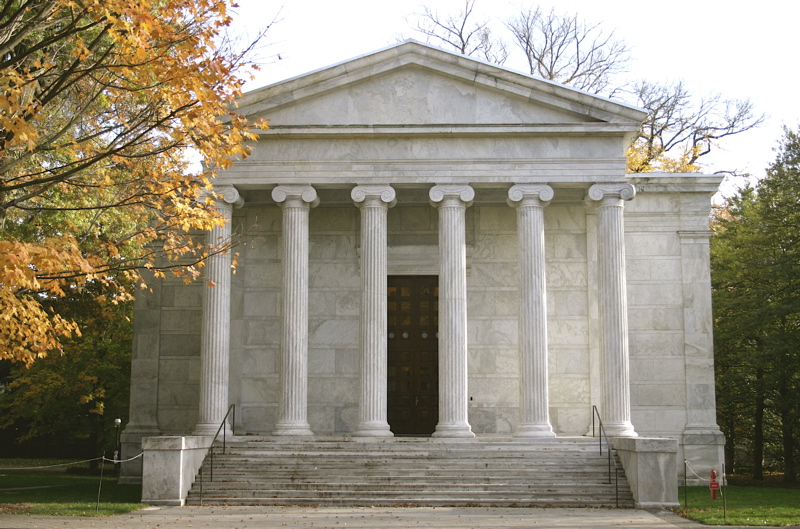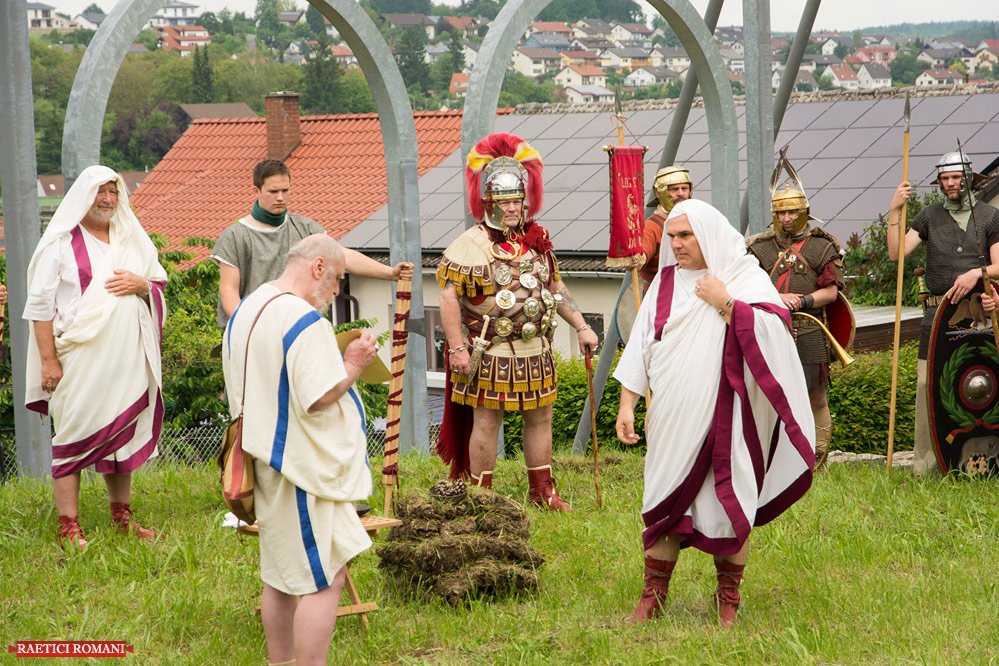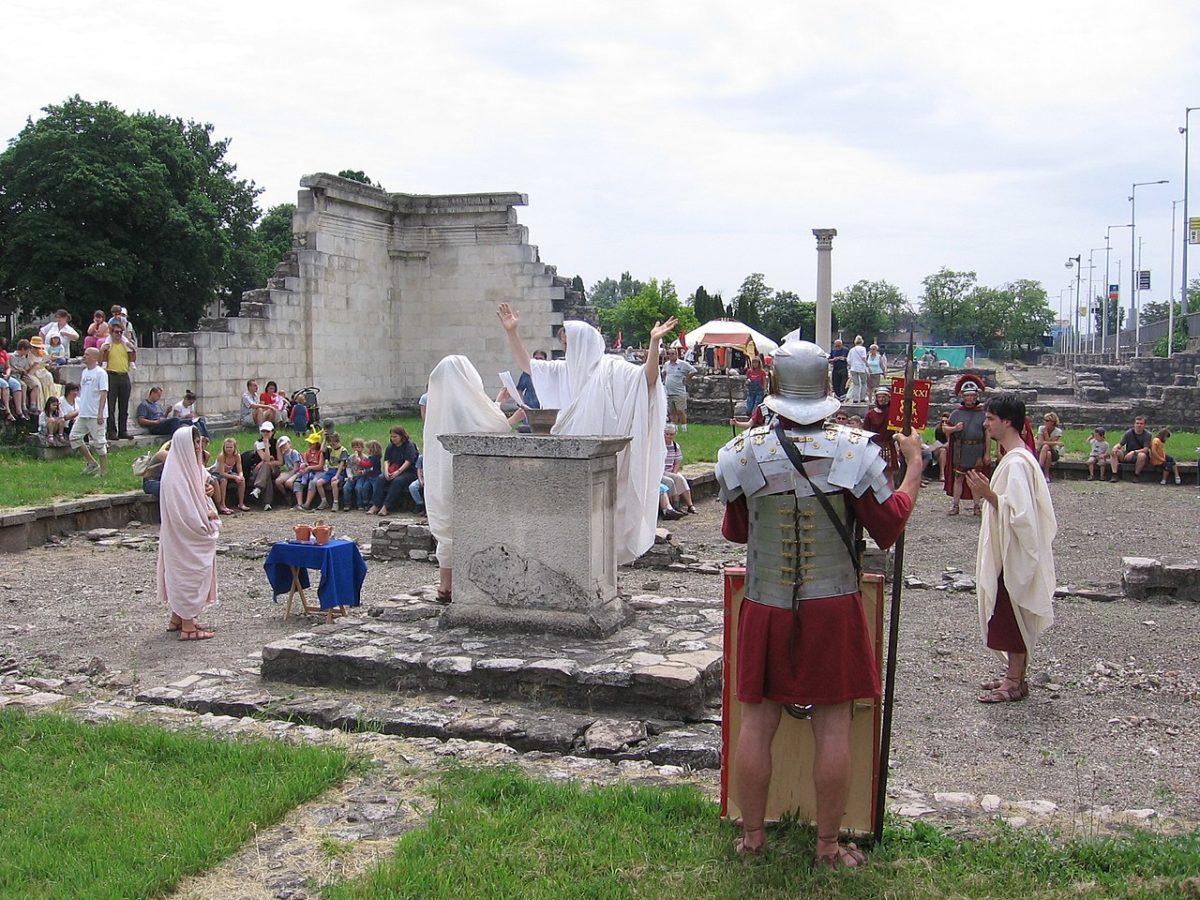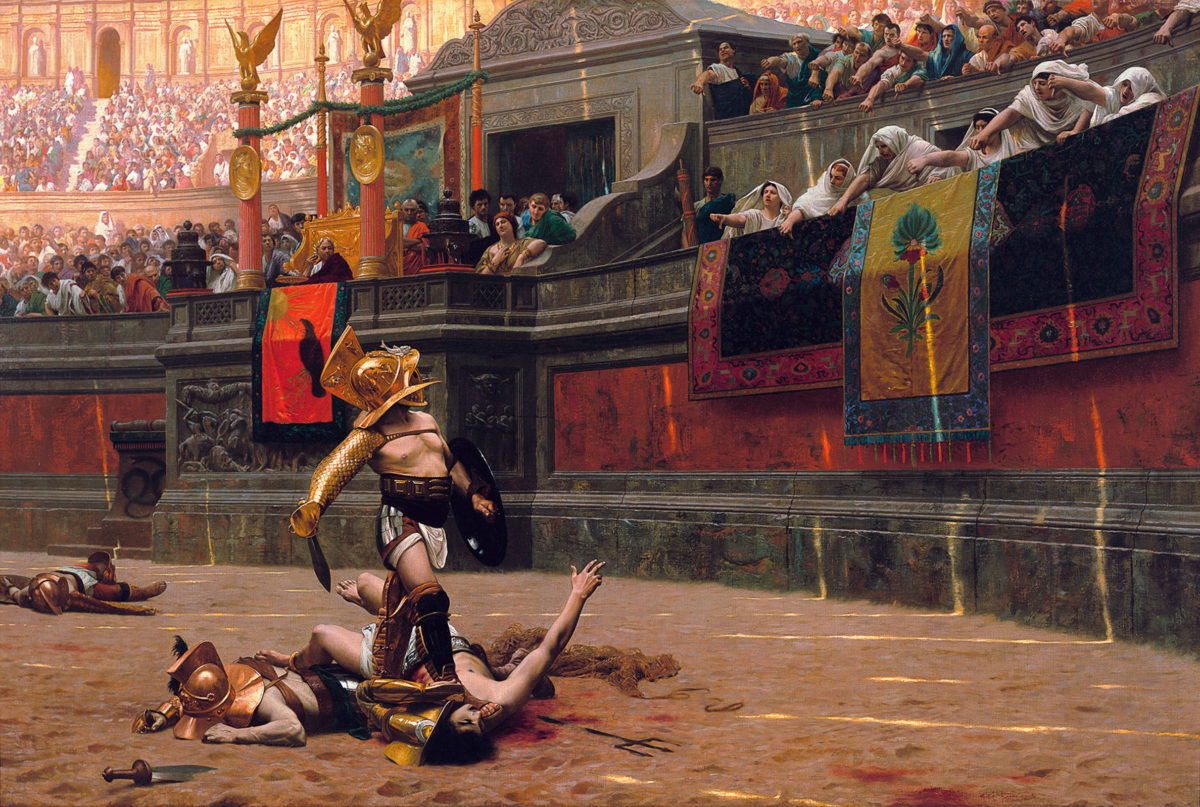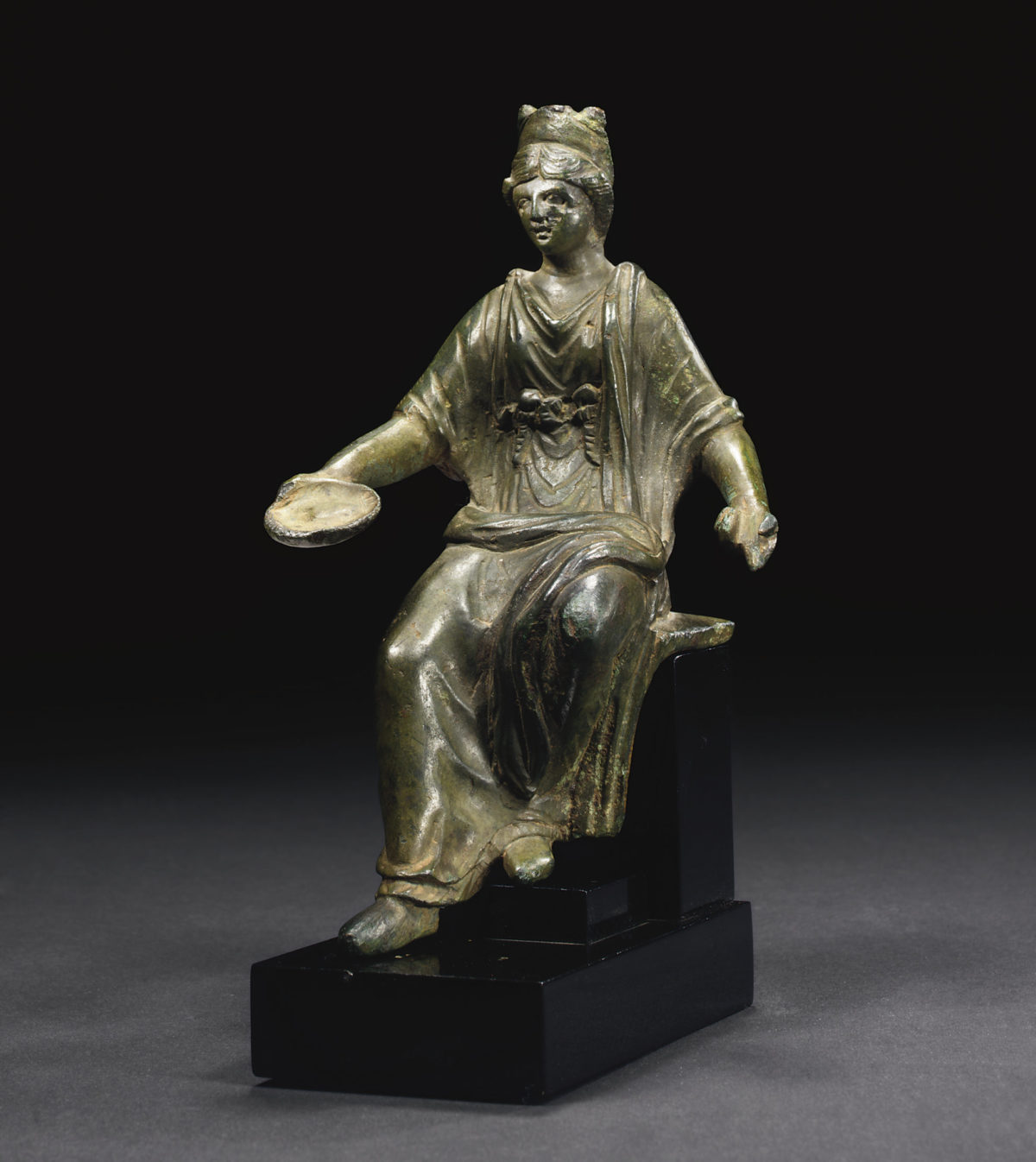Salvete omnes!
I have the honor of being an Aedilis Curulis this year, and volunteered to run the gladiatorial games for the Ludi Romani. Here is my account.
We had two entries for the Munera Gladiatoria in this year’s Ludi Romani. Because of the limited number of entries, I am modifying the rules of the Regulae Ludorum into a “best of five” format to determine the victor. Each round represents a clash of arms, followed by a brief separation as the participants regain their breath.
I hereby present our participants and a recount of the match. Apologies in advance for any mistakes I make in the “color commentary”. The final result should remain unchanged.
The traditional pompa, tubicines, and other officials enter the arena, followed by the two fighters, greeted by the roar of the assembled crowd, here to honor the Ludi Romani with a display of the gladiator’s art. As editor of the Games, I introduce our gladiators, shouting to the crowd their names and proud histories.
* * *
Edigius the Hoplomachus (sponsored by D. Aurelius Ingeniarius)
Born of the high mountains of Macedonia, Egidius would wrestle and play-flight among his childhood friends. Perched high on rocks and boulders he soon developed a liking for fending off his gaming opposition with large sticks. Sadly, as a young teenager, his village was raided by unknown tribesman. During the attack, a brief wave of courage swept over him. Using a makeshift lance he had crafted, he charged down an unknown warrior, spearing him through the back. He provided an opening for him and 3 other villagers to escape.
He was taken in by a local gamesman of a nearby town where he was offered to perform in exchange for food and shelter. There he would fight various wild animal or wrestle with various challengers from the region.
Soon his reputation grew of his ability and now he fights in the name of Jupiter and for the glory of the Roman Republic.
* * *
Sudrenus the Murmillo (sponsored by M. Pompeius Caninus)
Sudrenus was born in Coria, a town and fort about 2 miles south of Hadrian’s Wall near its eastern end. He is 22 years old, 180 lbs, 5’9″, with brown hair and blue eyes. He has a sturdy build with muscular legs, broad shoulders and strong forearms. He learned leather working from his father but the call of the arena, the promise of fame and the rich lifestyle has drawn him to the arena.
He fights for the Ludus Venetus.
* * *
Those who are about to die salute you!
As the crowd roars its approval, I step aside, and allow the contest to commence.
Clash #1: Edigius rolls an 8, Sudrenus rolls an 8 (all die rolls include the appropriate modifications for type and tactic).
The two opponents rush towards one another with a dizzying flash of blows. Edigius’ lance is easily deflected off of Sudrenus’ large shield, and the murmillo attempts to take advantage of the temporary opening to thrust with his gladius. The experienced hoplomachus sees the move coming, however, and twists his body, avoiding the blow. The crowd cheers the display of skill.
Neither man wins the first clash.
Clash #2: Edigius rolls a 3, Sudrenus rolls a 6.
Stepping back, the two opponents judge themselves from their initial contact, each getting the measure of the other. A brief moment, and then the two approach one another at the same time, without needing any signal save the warrior’s instinct. The young Sudrenus feints right with his gladius. Edigius swings his lance around to parry the threat, and then feels the staggering clang of Sudrenus’ small shield against the faceplate of his helm. Reeling back, he attempts to shake off the effects of the blow as the crowd erupts with applause.
Sudrenus wins the second clash.
Clash #3: Edigius rolls a 7, Sudrenus rolls a 9.
Sudrenus gives his opponent no time to rest, immediately pushing the attack. He thrusts with his gladius, glancing off his enemy’s large shield one, twice, three times, while easily fending off the lance with his small shield. Unable to gain any traction against Sudrenus, Edigius backs up, trying to buy time. He then spins unexpectedly and attempts a shield-bash of his own. The young murmillo dodges out of the way in the nick of time, but the more experienced hoplomachus can’t connect no matter how he tries.
Sudrenus wins the third clash.
Clash #4: Edigius rolls a 6, Sudrenus rolls a 4.
Finally Edigius shakes off the effects of the head-shot. He circles slowly, feinting with his lance, looking for any weakness, any opening. Sudrenus, his confidence bolstered by his showing so far, tries to lunge past the large shield of his enemy. Edigius seizes the opportunity and thrusts his lance into his enemy’s thigh, which rips it out of his hand. Sudrenus goes to one knee, pain ripping through him, as he quickly pulls the lance loose and tosses it aside. Unsteadily, he regains his feet, seeing Edigius brandishing his dagger in his right hand. Blood flowing from his leg, Sudrenus stands, gripping gladius and shield tightly. The crowd can barely contain its excitement at the sight of blood on the sand.
Edigius wins the fourth clash.
Clash #5: Edigius rolls a 5, Sudrenus rolls a 13.
With but a dagger and small shield facing a gladius and large shield, Edigius circles his wounded enemy, hoping that blood loss will weaken him further. But Sudrenus, wounded as he is, throws forth a series of blows that are barely met by the hoplomachus’ small shield. Edigius manages some half-hearted thrusts with his dagger, hungrily eying the discarded lance but unable to reach it. Finally, the gladius finds its way home, thrusting into Edigius’ shoulder right above the point where his manica ended its protection. It’s a clean thrust, and Edigius goes to the ground, groaning in pain, and raising one finger to signal his acknowledgement of defeat. The crowd leaps to its feet, knowing the match is over. On and on they roar and hold their hands high, signaling their judgment on the loser…
Sudrenus wins the fifth and final clash. He was won 3 out of the 5 clashes of the match and is the victor.
Sudrenus looks around to the crowd and sees a sea of thumbs pointed down in the pollice verso. “Throw down your sword” they spoke to him with their gesture. Missio! He does so, and the crowd roars its approval and the palm branch of victory is placed into his hand.
Sudrenus holds it up with triumph, and has his place in history as the victor of the Ludi Romani.

